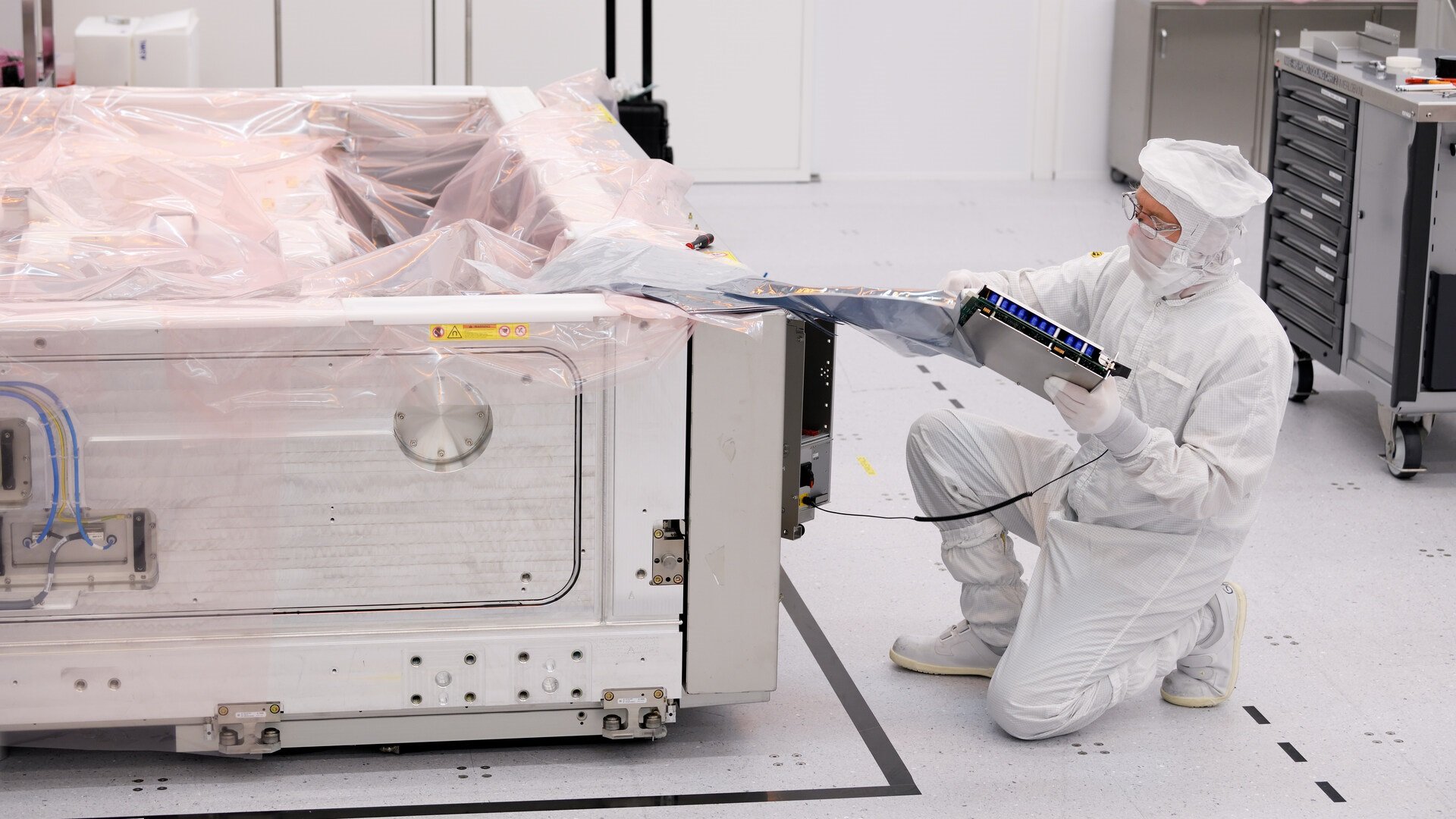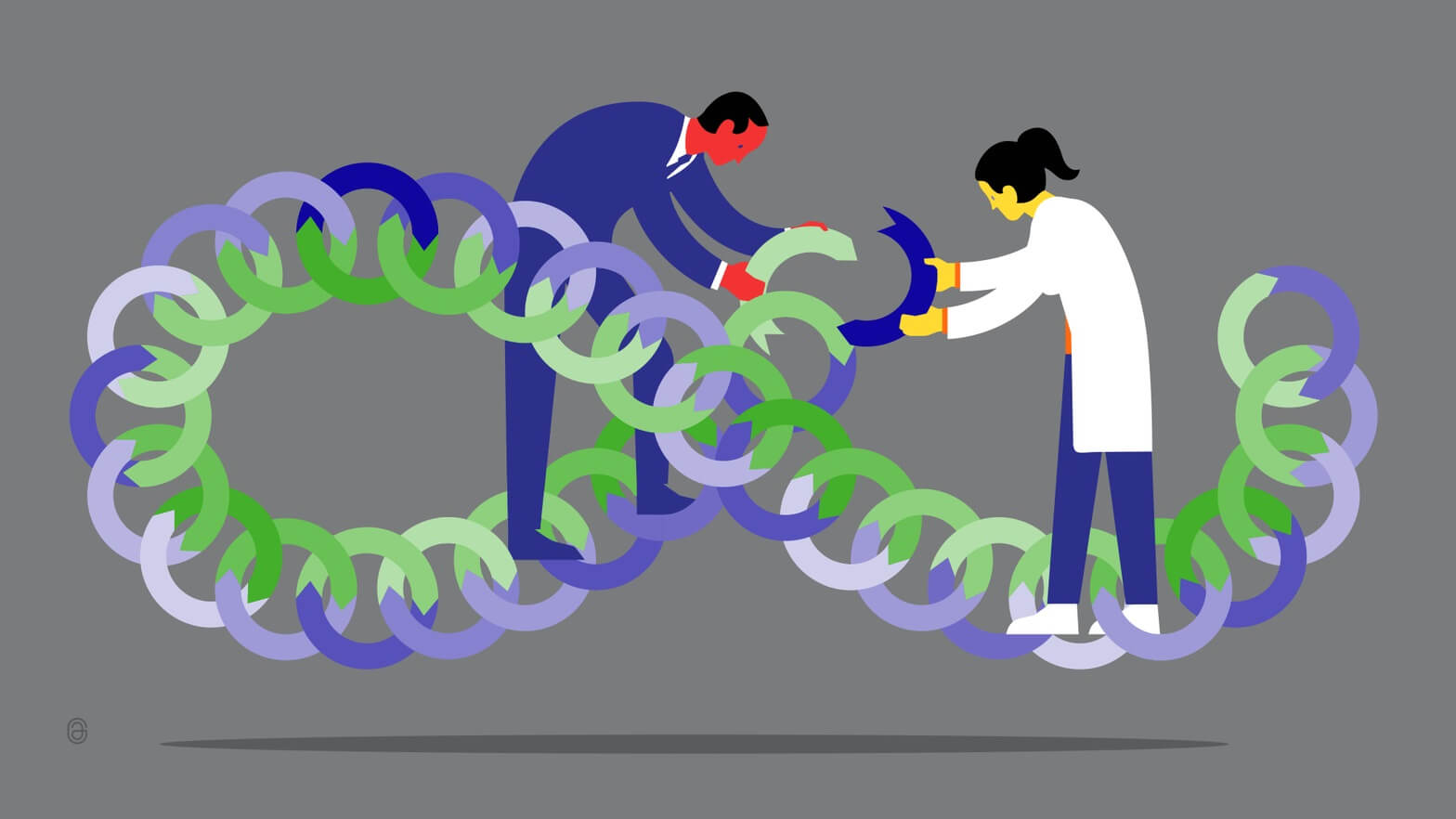4-minute read - by Kate Brunton, June 21, 2023
Originally a lawyer, Marieke Mulder has worked with ASML for over 10 years in roles that include Legal director, director of Strategic Supply Management, and senior director and head of the Presidents’ Office. Since 2021, she has led ASML’s ESG (environmental, social and governance) sustainability program, with the goal of embedding sustainable business practices throughout the entire organization.
What is ASML’s ESG strategy?
ASML aims to be a top-performing company in terms of sustainability. Our environmental impact roadmap is ambitious. It includes achieving net-zero greenhouse gas emissions in our supply chain by 2030 and from the use of our products by 2040, and sending zero waste from our operations to landfill or incineration by 2030. To create positive social impact, we set goals related to our employees, our supply chain, our innovation ecosystem and our communities. In total, we focus on nine sustainable business themes across environmental, social and governance topics, with corresponding key performance indicators (KPIs).
At ASML, ESG is not a side project. We’ve integrated it into our main business strategy. It should be part of how we make decisions. Instead of considering only cost or quality, we also consider the environmental and social impacts of our decisions. Quantifying this impact can help.

Why is sustainability important to ASML?
We’re committed to ESG sustainability principles because they align with our company’s purpose, vision, mission and values, and these issues are important to our stakeholders. We’re firm believers that technology can be a force for good in the world. Digital technologies such as microchips are some of the most important tools available to drive progress and help solve environmental and social challenges, including the transition to renewable energy sources.
But we also recognize that new technologies come with new problems to solve, such as the energy use of devices and data centers, increased waste and material use, and social challenges such as climate change and food security. Ultimately, we believe that if businesses act sustainably, it benefits everyone, including the businesses themselves.
How is ASML working to meet its ESG goals?
We’re working hard to reduce the energy consumption of our products. Lithography machines use a lot of energy. One of the many ways in which our R&D teams are trying to do this is by reducing an EUV (extreme ultraviolet) machine’s power consumption while it’s idle.
One of our ‘social’ themes is being a valued partner in our communities. We see this as a responsibility to give back to society, but it’s also a recognition of the fact that the rapid growth of our company may have unintended negative side effects on our environment and the people who live in it.
For many years we’ve been involved with our communities around the world through our local outreach programs, but now we’re stepping things up in a big way. We recently established a community partnership program with substantial funding. In 2022, our global community spend was around €10 million, and we have the ambition to increase that amount to around €100 million per year by 2025.
What is ASML’s approach to tackling such big goals?
I think there’s a danger to thinking that only big things matter when it comes to sustainability. ASML has big targets, but ultimately those targets translate into Excel sheets with lists of small items that all add up to create big impact. We’re traditionally very good at that – we break down targets into concrete actions and execute on them.
ASML is proof that employees can play a vital role in driving progress in sustainability. For example, our ‘Green ASML’ employee network challenges our management teams on these topics, and they participate in our strategy meetings and help to spread awareness among the rest of the organization. We are very grateful for their collaboration.
Why is sustainability important to you personally?
I feel the responsibility to leave the world a better place, and it’s important to realize that we actually can. Anyone can embed sustainability into what they do. Anyone can consider the environment and their fellow humans when they make even the smallest decision. At the same time, people should not feel guilty because they don’t lead perfect lives. We live in a system that renders it nearly impossible to do the right or responsible thing all the time. We need politicians to regulate and companies to offer sustainable solutions.
My passion for sustainability is also why I’m excited to speak at the European Women in Tech Conference on June 28. It’s an opportunity to talk to other women in the tech world about what I think is an extremely important topic. I hope to inspire them to make their voices heard and to initiate action within their own companies.




